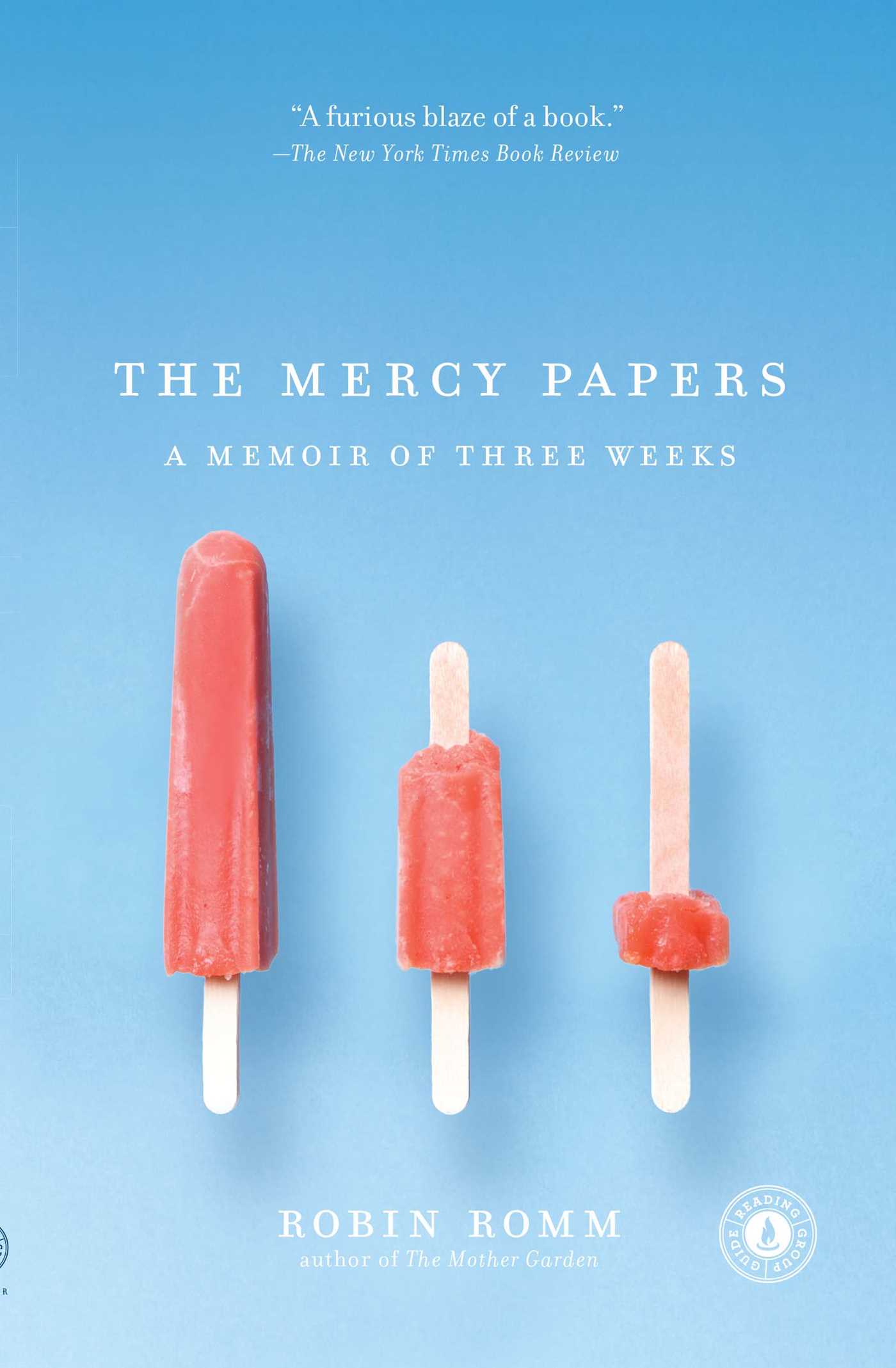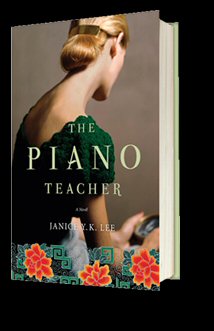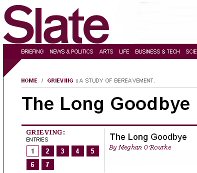 Andrew Bacebich reviewed James Wright’s Those Who Have Borne the Battle (PublicAffairs 2012), and addressed a growing divide between U.S. citizens and the military establishment they subsidize. It’s more than “. . .the places like Iraq and Afghanistan [where] the United States still fights ambiguous no-win wars of elusive objectives.” Wright is concerned with a lack of engagement by cit
Andrew Bacebich reviewed James Wright’s Those Who Have Borne the Battle (PublicAffairs 2012), and addressed a growing divide between U.S. citizens and the military establishment they subsidize. It’s more than “. . .the places like Iraq and Afghanistan [where] the United States still fights ambiguous no-win wars of elusive objectives.” Wright is concerned with a lack of engagement by cit
izenry (apart from defense contractors, I must hasten to add). “A public disengagement from military service has lost an important check on Washington’s inclination to use force, with the result that the troops professed to be held in high regard are repeatedly misused and abused. Meanwhile, the v
acuous symbols like bumper stickers and pregame ceremonials that have supplanted substantive engagement between citizens and soldiers invite mockery and derision” (NYT Book Review, 27 May 2012, p 14).
In 2007, reviewer Bacevich, a history professor and former soldier himself, lost a son in the Iraq War.
Readings
Share book reviews and ratings with DV,
and even join a book club on Goodreads.
Small Pond, Big World of Letters and Letterwriting
When was the last time you spent an entire day writing a letter? Suzanne Marrs has edited a collection of letters by two writers for whom this must have been a regular occurrence.
In an unrelated essay on photography, A.O. Scott wrote that “. . .while the literary canon has made room for a handful of diaries, letters and newspaper articles, these exceptions tend to reinforce the exclusion of vernacular forms from the pantheon of art (NYT Magazine 6 May 2011). A collection of letters between Eudora Welty and William Keepers Maxwell, Jr. (with an occasional letter from Maxwell’s artist wife, Emily Gilman Noyes) has been curated by Suzanne Marrs. While the collection on the whole belongs firmly in the aforementioned vernacular, to fellow swimmers in that drought-stricken pond known as the literary world, the collection offers a unique dialog between two able practitioners. Editor Marrs reprises James Watson’s belief that such letters fit in the space between art and life, and this collection reaffirms that conclusion.
What is most remarkable about the dialog is not extraordinary prose, though there is some of that, and not the events in their separate lives, which spanned two long-lived and productive careers. Rather it’s the civility, the steadfast tone of mutual encouragement and affection. When William signs off with “Devotedly” (26 December 1960), it strikes the reader as precise and faithful to the nature of the correspondence read up to that point in the collection.
As a 2011 release, the book will work better as an eBook than the advance proof print received for review. The reason for this is the extensive research done by Marrs. For each chapter of the collection, there are 75 to 120 endnotes. Today’s hypertext-savvy reader is accustomed to hovering over footnotes, rather than bookmarking the relevant page of endnotes and flipping back and forth. The endnotes provided can be ordinary, but sometimes they provide essential context for literary projects, characters or contemporaneous history. Consider endnote 43 in Chapter 6:
Eudora and her brother Edward drew dialogue balloons above photographs on magazine pages and folded the pages so that the photographs could not be seen. Then they exchanged pages, wrote remarks in the balloons, and shared the results” (p. 467).
On other occasions, the endnotes recall the writers’ public appearances, such as:
Eudora first met newsman Jim Lehrer in 1984, and he quickly introduced her to his colleagues Robert MacNeil and Roger Mudd. Late in 1989, as a reporter for The MacNeil/Lehrer NewsHour on PBS, Mudd interviewed Eudora about the photographs she had taken during the Great Depression. An extensive collection of these images, titled Photographs, had just been published” (p. 476).
An eBook also permits search. As the arc of these two lives becomes clearer in succeeding chapters, a desire to revisit mentions of certain events, places, opinions and literary works arises. Old school thumbing through previous chapters is quaint but inefficient and error prone.
Devotees of the cult of the New Yorker magazine where Maxwell worked as an editor will find much to their liking, as literary figures major and minor make their way across its stage and the magazine’s host city. As a result, the letters occasion appearances by John Updike, Bernard Malamud, Rachel Carson, William Matthews, Katherine Ann Porter, Howard Moss, Seamus Heaney, Frank O’Connor, John Cheever — well, only John Leonard would list them all in a book review. The particulars surrounding the editorial process and the publishing world of that era (Maxwell: “I didn’t like the jacket copy that Knopf sent and so rewrote it”) will also be of interest to cultists.
The letters are instructive for what they do not mention, or at least mention little. Their careers coincided with the space program, the personal computer, the Hollywood blacklist and race riots. Here and there are snippets of those events (Welty wrote “Where is the Voice Coming From” after the Medgar Evers assassination), but the sense of small pond-ness is everpresent. For this they can be forgiven, though less so Marrs’ effusive characterization of their intellect.
The book contains a few black and white photos (though none from Welty’s NYC photographic exhibition), but otherwise it lacks the compelling imagery that marked some of these letters. The letters were sometimes written on illustrated notecards, with performance notes, funeral programs and clippings included, and featured the requisite strikeouts and editorial commentary. A glimpse of some of those artifacts would have livened up the book’s inexorably linear course. (Perhaps there were issues in gaining permission.)
In a way, the collection can be seen as unintentionally didactic for today’s reading and writing habits. As editor Marrs wrote,
. . . the lack of self-absorption, the embracing of experience in all its complexity, the capacity for love, the generosity of spirit, and the ability to face loss and death — these constitute the invisible signature of Welty and Maxwell, signatures that are as powerfully present in their letters as in their fiction (p. 14).
Theirs reflected the sort of disciplined friendship that may be put at risk by the mashed-up, cut-and-pasted interactions the Twitterverse fosters. A wistful, reflective quality in many of the letters that goes beyond literary observations like Maxwell’s “It is raining cats and dogs. How I admire the person who said that for the first time,” and Welty’s “Nothing looks more disheveled than a thoroughly rained-on redbird.” It is a quality goes beyond their small town roots and sturdy sense of themselves. They spent those days and nights writing letters for the friendship, and to keep alive articulate, specific urgings the letters both sent and received sustained. As Welty wrote in a Vietnam War era letter dated 12 June 1967:
Please forgive me backsliding into not writing.
The book is published by Houghton Mifflin Harcourt ISBN-10: 0547376499.
Readings
Share book reviews and ratings with DV,
and even join a book club on Goodreads.
The Unceasing Wail (And Barb Would Like Her CD Back)
 In the echo chamber of pain and tears Robin Romm @RobinRomm inhabits in The Mercy Papers (Scribner, 2009), there are other characters: father Richard, boyfriend Don and a mother, Jackie, “who was the first to notice when the crocuses bloomed each spring,” even after she had been diagnosed with metastatic breast cancer. And other characters, too. But Ms. Romm’s shrieks are so piercing, so monstrously realistic that nearly all other voices are drowned out in this narrative.
In the echo chamber of pain and tears Robin Romm @RobinRomm inhabits in The Mercy Papers (Scribner, 2009), there are other characters: father Richard, boyfriend Don and a mother, Jackie, “who was the first to notice when the crocuses bloomed each spring,” even after she had been diagnosed with metastatic breast cancer. And other characters, too. But Ms. Romm’s shrieks are so piercing, so monstrously realistic that nearly all other voices are drowned out in this narrative.
This is as it should be.
Readers should be prepared for plainly difficult passages such as:
On very bad days, Mom will look up at me, fear and pain staining the brown in her eyes, and she will say, ” I want to go home.”
“You are home, Mom,” I say, holding her hand, which is hard as plastic from edema.
“I know, ” she says, her face pleading, “but I want to go home.” My dad says I’m attaching meaning to this when it’s nonsense.
At other times, The Mercy Papers’ rant achieves more. This is where Romm is at her best, craft giving lift to the despair where nothing else could. That lift — one is reluctant to use a more demonstrative expression — is very much in need.
Legacy.com operates a hosted for paid obituary notices for 275 national newspapers, including the New York Times (not to mention Gadzoo, a pet finder service, perhaps suited to the sensibilities of the Company) . As fate would have it, I’ve had occasion to sponsor a legacy.com post / guest book and to visit three others since January. A casual visit to most guest books on legacy.com confirms Romm’s perception that outside the small world of those directly affected by the loss, an abundance of platitudes and poorly reasoned sentimentalities serves to create a sense of isolation. In Papers, this plays out in many scenes. One that comes to mind comes after Jackie asks the rabbi what happens in Judaism after people die and the rabbi offers up that “there is a great energy in the universe . . . and when you die you rejoin this great energy.” Little wonder the sense of estrangement deepens as this memoir continues:
We could get a cup of coffee. But who wants coffee? Who wants to see anyone in the outside world? The outside world has gotten increasingly foreign. People smile for no reason, purchase sugary snacks, worry over leaky roofs out loud to strangers. Who needs this? No one in this house wants to talk about leaky roofs. We want to sit quietly and be known. We want to be soothed by quiet warm hands. We want to be passive, have the world come to us. If we are going to use our tiny reserve of energy to strike up conversation with a stranger, well, it might as well be with God. No one else is useful. Not that God is being very useful — up there punching buttons on his death remote, smirking away.
Or, as Romm writes elsewhere, having nine years to prepare for the coming death still left her ill-prepared, and she works to convince the reader that this is as it should be.
. . . the changes won’t be hopeful — like the clarity of vision I sometimes feel when I’m in my bedroom after crying and the lines of the windows and slatted doors all look too sharp, hyper-sharp, and all people seem tragic and plain to me, easy to understand. Some of the changes will be only pain. Pain when I see babies, pain when my friends go to lunch with their mothers, pain on my birthday, on her birthday, on every birthday of every person I know. Pain and a deep, toothy hollowness inside me that will go on grinding forever.
There’s some transference/substitution wound in the author’s psyche, as there’s far too much narration about pets. Even though the comings and goings, food ingestion and waste discharging of the beasts lends a certain authenticity to the story, this may appeal to only to inveterate animal lovers. On the other hand, had Ms. Romm not been an only child, descriptions of siblings might have been no less meaningless.
When the reader arrives tearful and bloodied (and the blood will not all be your own) on page 194, Ms. Romm gifts the purchaser of this volume twelve Six Feet Under-esque blank journal pages (imagine the conversations with the publishing house over this decision).
Loss doesn’t end. It goes on and on and on, written on every day that will follow.
There you have it. Twelve blank pages for notes, after 194 pages of meticulous coaching. Preparatory notes, should it not yet be your time for such loss. Or, if your time has come, as it has for me and my mother (www.billieunderwood.com) only three months ago, then twelve blank pages just to gather up the bits of memory that loss has tried its best to obliterate. Ultimately, there is no making sense of it, but we are each judged — perhaps by someone much like Robin Romm — by the character of our wail.
When the wailing ends, probably through mere fatigue, prepare to be instantly teleported back to that other place you live, the one where Barb would like her CD back.
(c) 2009 by Mark Underwood
New York Times Sunday Book Review Snips
Some time ago, a devilish hobbyist/collector/imitator instinct took hold. What got my attention were occasional flights of fine prose writing in the New York Times Sunday Book Review section. As the quality of these snips continued at a fairly high level, it seemed worth collecting them on a separate page of the blog. If interested, navigate to these snips from the top right menu of this page, or bookmark this link.
Cinematic Canvas, Limp Brush

Janice Y. K. Lee
There is much to like in a book that appropriates a cinematic swath of the not-too-distant past and brings it into sharp focus. Why, then, does Janet Y. K. Lee’s first novel The Piano Teacher (Viking, 2009) leave an unsettled and incomplete aftertaste?
Despite the author’s seemingly glamorous recent background, she pulls no punches in delivering grim accounts of tortured lives lived beneath the conquering Japanese. These landmines of agony (based mostly upon historical fact) are saved for later in this story — a story so slow to take flight that it’s tempting to set this book aside for one better steered. But patience is its own reward, in this case delivered in the form of World War II’s Colonial Asian horror, and two romances. The romances are set apart by a decade but unified by geography and a common, curiously impassive love interest, Englishman Will Truesdale. What Trudy and Claire see in Will’s typically distant, sometimes damaged sensibilities is, if not mysterious, untold. (Perhaps he was more handsome than the author is willing to write, though Lee’s powers of description are often strongest when describing faces, bodies and clothing).
A few weeks later, she asked, ‘Why me?”
“Why anyone?” he answered. “Why is anyone with anyone?”
Desire, proximity, habit, chance. All these went through her mind, but she didn’t say a word.
“I don’t like to love,” he said. “You should be forewarned. I don’t believe in it. And you shouldn’t either.”
There’s a conscious and mostly successful attempt to paint Hong Kong as the background insinuating itself subtly into the foreground. When this succeeds, the result highlights the story’s cinematic canvas.
Dominick is one of those queer Chinese who are more English than the English, yet has no great love for them. Educated in them most precious way in England, he has come back to Hong Kong and is affronted by everything that is in the least bit crass — which is to say, everything — the swill on the streets, the expectorating, illiterate throngs of coolies and fishmongers.”
When less successful, the narration seems lifted from a period travel piece. Interspersed between the upper class chit chat, gossip and internment camp negotiations are stark descriptions that will shock you to sudden attention.
A young woman, Mary Cox, says her husband was grabbed by Japanese soldiers and made to clean up after bodies had been dragged along the street, shedding body parts like animals. They had to clear all the bodies before they got in the water supply and spread disease. He came home soaked in blood and bits of decaying flesh and wept before falling on the sofa, exhausted. He was gone the next morning. She hasn’t seen him since.
As the story unfolds, the reader must keep track of evolving plot threads and also adapt to style shifts. These shifts take the form of shorter segments rather than the full conventional chapters (e.g., the chapter labeled “1943”), which have the flavor of characters’ journal entries embellished into short story fragments. This later style might well have worked better throughout, since the style alternates between 50’s and 40’s scenes. Instead when they do appear later in the book, it’s a curious shift that compounds the temporal switchbacks that have occurred throughout.
Then there is the matter of the book’s title. True, the principal narrator is piano teacher Claire, but despite references to childhood practice, Claire’s connection to music is coincidental. Instead her teaching sessions with the daughter of a well-off family, Locket, are memorable for her interactions with household staff, descriptions of food and clothing, and vaguely hinted-at dark moments from the past. Music plays no role in this; in fact, much later, when Claire is asked to play for a group of adults, she is desperate to find a way to avoid playing. You will not be alone if you finish The Piano Teacher without a single lingering melody.
This may have been as intended. The character who is “trying to become invisible, so that she will be all the more visible around Will” dimly senses that her skill as a pianist is a sort of deformity, not unlike Will’s limp from a wartime injury. But this doesn’t explain why the skill that gives her entree into the central plot becomes the role given billboard status for the novel. Writ large, it’s as though the novel’s wartime privations become a power for dissociation and confusion in which Lee’s prose is complicit.
A passage representative of this discipline describes a loyal amah who followed a family after they had been interned during the war. She brought them food and supplies into the camp in a large picnic basket. Because she had known them from childhood, she brought food every week:
. . . until one week she had not appeared. The day after she was to have come, the family received the same picnic basket. Inside was a small hand, wrapped in dirty towels. “They thought it was a funny joke. Of course”, [Will] said, “the truly sadistic Japanese were the exception, but they were all we could think about and all we ever remember. We never knew what happened, whether she had offended someone or done something wrong or was just in the wrong place at the wrong time.”
The story was his apology. She knew he didn’t owe him one. This was how she knew his affection.
Italics mine. The narration ends there, and moves impassively on to describe the couple’s arrival at Macau Station and a striking portrait of a governor, “with mustache and white hat.” The reader is swept along in such eddies of helplessness, of disorder dissolving into surface order.
The Piano Teacher succeeds in drawing parallels between the fateful directions taken in the affairs and the fate that befell Hong Kong after the Japanese occupation. But because its characters are themselves not always capable of making sense of what has befallen them, the book lacks a certain clairvoyance of purpose, or at least enlightened telling of the adversities.
One is tempted to point to stereotypes of Asian cultural passivity, a much-decried Western cliche to explain this, but a more plausible explanation (especially considering that the author is Asian herself) is surely that Lee’s characters are too much a part of the landscape that envelopes them: like narrator Claire’s self-avowed chameleon-ism, allowing fate to wash over them, accepting it with lament, wry comment, disdain, or simply striving to look ahead to the normalcy that it’s hoped will befall them just as surely. Perhaps the stereotype belies a more careful interpretation. William James wrote in “Varieties of Religious Experience” :
When, for example, Achilles, about to slay Lycaon, Priam’s young son, hears him sue for mercy, he stops to say:
“Ah, friend, thou too must die: why thus lamentest thou? Patroclos too is dead, who was better far than thou…. Over me too hang death and forceful fate. There cometh morn or eve or some noonday when my life too some man shall take in battle, whether with spear he smite, or arrow from the string.” *
* Iliad, XXI., E. Myers’s translation.
Then Achilles savagely severs the poor boy’s neck with his sword, heaves him by the foot into the Scamander, and calls to the fishes of the river to eat the white fat of Lycaon. Just as here the cruelty and the sympathy each ring true, and do not mix or interfere with one another, so did the Greeks and Romans keep all their sadnesses and gladnesses unmingled and entire.
Lee leaves convincing traces of a deeper, if calmly laconic, insight. “So that’s how it goes, [Will] thinks. That’s the beginning of how it all changes. We become survivors or not.” And later:
The reunion is sweet, the late afternoon sun slanting through the window, the flat horizon of the sea and the boats floating in the harbor, and Trudy, right here, right next to him. He has thought of her for so long, missed the feel of her skin and the smell of her breath, that he moves as if he’s in a dream, She is quiet, more than usual, and seems skittish. They are both too sapped, too thirsty, to ever be quenched by something as mundane as the physical.
But wait — this is Will, who has done little to earn his place in the hearts of the women he was typically at pains to claim he did not love. Whether betrayed by him, or simply wounded by his stubbornness, Trudy deserves more. His other lover, the adulterous but increasingly sympathetic Claire seems to wander through the plot looking for her own denouement; when it comes as an anticlimactic exit, some readers won’t care, or find the exit to be a cynical symbol of the character’s failure to carry a greater burden of the story.
At times this is lovely work, drawn in pastels of a fateful stillness. Perhaps Lee’s next canvas will be equally broad, taking from a history no less rich, no less stark, but wielding a sharper brush, filling out characters capable of making just a little more sense of what they experience.
(c) 2009 by Mark Underwood
Readings
Share book reviews and ratings with DV,
and even join a book club on Goodreads.
Two Women Take Stock of Two Losses
 Meghan O’Rourke’s Slate series of reflections on the loss of her mother provides, in a complementary way, some other ways to look at death and grieving. Romm’s memoir was fresh in my mind when I read the seven parts to O’Rourke’s pieces from start to finish. After all, there must be other interpretations, other aspects to adjustment, to acceptance — both by the dying and by their survivors.
Meghan O’Rourke’s Slate series of reflections on the loss of her mother provides, in a complementary way, some other ways to look at death and grieving. Romm’s memoir was fresh in my mind when I read the seven parts to O’Rourke’s pieces from start to finish. After all, there must be other interpretations, other aspects to adjustment, to acceptance — both by the dying and by their survivors.
But I was not persuaded (and O’Rourke is not after any mind-changing; the grief-striken are in a far different place) of the potential for anything short of the angry, wounding ricochets of loss Romm documented.
(c) 2009 by Mark Underwood
Readings
Share book reviews and ratings with DV,
and even join a book club on Goodreads.
- « Previous Page
- 1
- …
- 5
- 6
- 7
- 8
- Next Page »


















